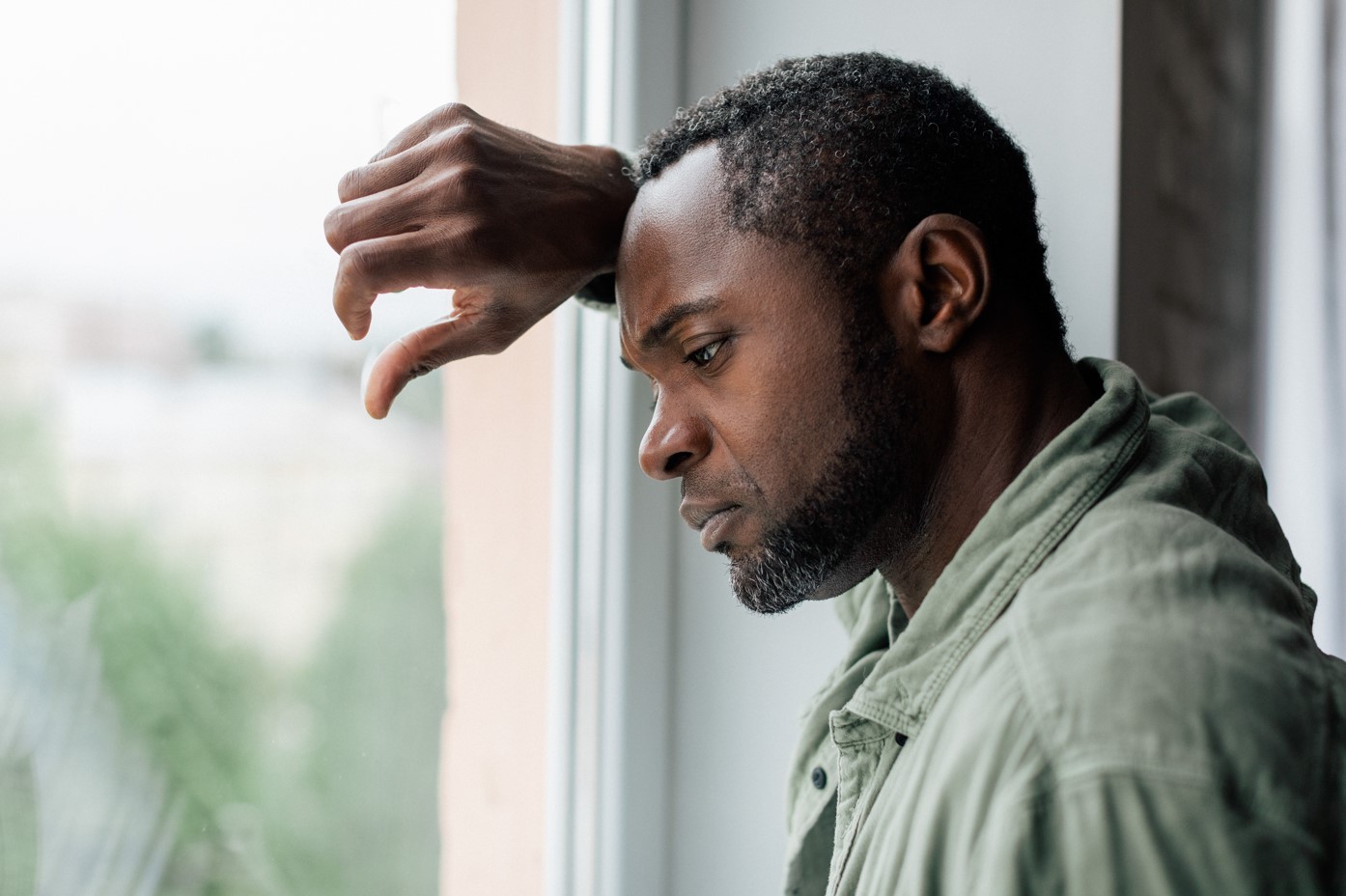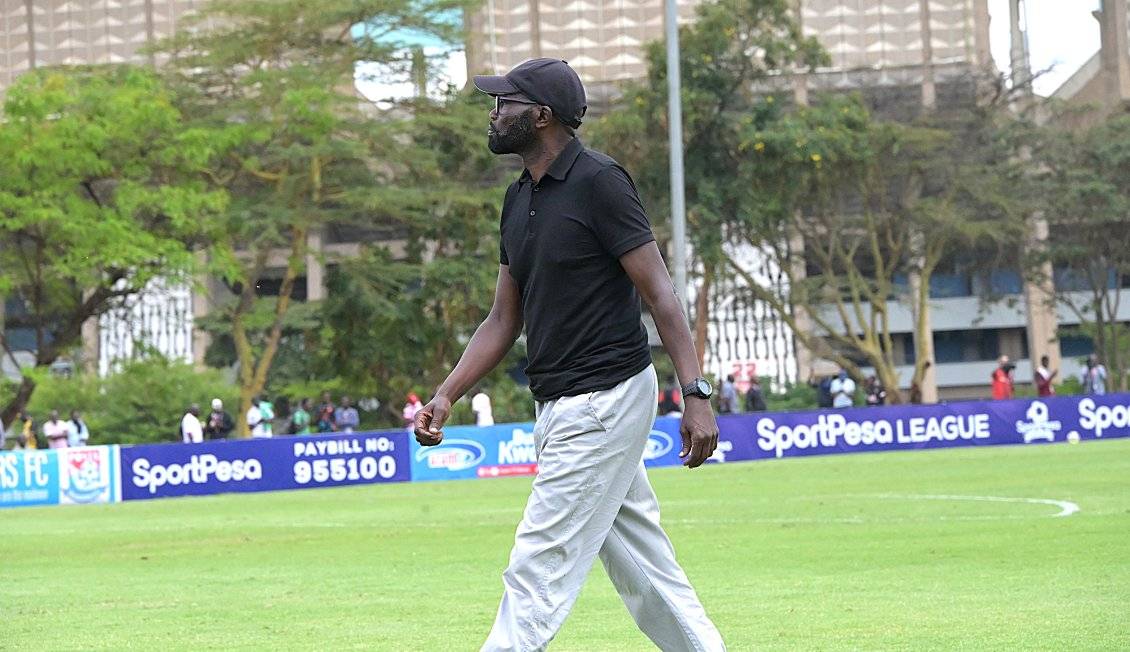How age-old societal stereotypes make life harder for men battling depression

WHO reports a 13 per cent increase in mental health conditions and substance use disorders over the past decade.
In patriarchal societies, "manning up" is a deeply ingrained concept, discouraging men from showing any display of vulnerability. Many have internalised this mindset, fearing to show weakness even in the toughest circumstances.
Brian Sifuna, now 25, narrated how he grappled with an identity crisis and severe depression that led him to defer his university studies. During this challenging period, he felt he had no one to confide in.
More To Read
- Violence is a normal part of life for many young children: Study traces the mental health impacts
- When birth brings heartbreak: Mothers share their stories of children with deformities
- Explainer: As mental health challenges rise, here is what you need to know about antidepressants
- Mental health advocates call for community-based support as economic strain deepens
- How to talk to your kids about mental health
- Data gaps threaten Kenya’s health goals as key indicators on mental health, drugs go unmeasured
"In my third year, life seemed to lose its meaning. Despite being a Christian and a leader in the Christian Union, I began questioning my life. Feeling deeply misunderstood, I struggled to explain what I was experiencing. Even my academic pursuits felt empty and devoid of purpose at that time," said Sifuna.
Unable to cope with his situation, Brian decided to defer his studies in journalism and mass communication at the Technical University of Mombasa without informing his mother.
After submitting his deferment letter, he remained on campus, hanging out with friends but skipping classes. When the long holiday came, he felt even more lonely, with no one to talk to, and was overwhelmed by the feeling of having let himself down. Yet he couldn't bring himself to share his struggles with anyone.
During this break, he found solace in reading extensively and discovering new interests and philosophies. He said his relationship with God deepened, helping him cope.
"I never told my mother because I didn't want to worry her. Being a single mother raising five children, I didn't want to add to her stress. She only found out when I decided to go back to school," said Sifuna.
Career choice
One of the burdens weighing heavily on him was his career choice.
"When you have a good voice, people automatically assume you'll be a journalist, so that's what I chose without much consideration. Looking back, I wish I had thought it through more carefully."
After battling depression and loneliness for nearly six months, Sifuna finally gathered the courage to return to school and is now in his last semester.
"One of the coping mechanisms that helped me during that season was going to the gym and becoming very fit. I made friends and didn't think much about the situation, and my relationship with God was strengthened," said Sifuna.
 Brian Sifuna, a journalism student. (Photo: Handout)
Brian Sifuna, a journalism student. (Photo: Handout)
Though he didn't consider seeing a counsellor or therapist, he identified some close peers he could talk to.
"Therapy doesn't work for me, but I found solace in my peers who understood what I was going through and confided in them. I managed to pull through," he said.
Many, particularly young men, are often not sure which path to follow when in a depressing situation.
"If you go to the internet, people are saying 'man up,' others say it's important to be vulnerable, yet others discourage vulnerability. Even when I was dealing with depression, I felt so confused," Sifuna said.
Gidi Otieno, now 30, recalls how his life fell apart three years ago when his wife and children left him.
"I lost my job and had to rely on manual labour. Things went from bad to worse. My spouse felt like I was not working hard enough to provide. We tried to resolve things, but it didn't work out. She swept the house clean and left," Otieno told The Eastleigh Voice.
The situation took a toll on him as he had to face stigma and gossip, the looks of neighbours, and being abandoned by friends.
"Life was so hard, and I found myself drowning in alcohol. I was pained because I couldn't talk to anyone. But I didn't want to die, so I just resolved to push on," he said.
Otieno wanted to go for counselling. But when his wife left, friends also deserted him and he had no money to seek professional help.
"The constant reminder that I should be strong and be a man helped me move on with life. I understood that my life was important and that's what I should push for," he said.
He observed that when marriages break down, people take sides, and the blame usually falls on the man.
"Many people saw me as a failure, a deadbeat dad, and other negative labels. No one bothered to find out my side of the story, and this taught me a valuable lesson about how society treats men," Otieno said.
 Gidi Otieno, a manual labourer in Eastleigh. (Photo: Handout)
Gidi Otieno, a manual labourer in Eastleigh. (Photo: Handout)
Silent struggles
In societies where masculinity is associated with toughness and a lack of vulnerability, many men struggle with depression without anyone to confide in. The generational gaps and the lack of mentorship and openness in men create a culture where they feel they must always be on point, leaving them to deal with their struggles in silence.
Dr Hanna Muse, a clinical psychologist at Zazi Hospital in Eastleigh, told The Eastleigh Voice that therapy and counselling are important for people facing depression, noting that they should not be dismissed or stigmatised.
She revealed that among the cases handled at Zazi Hospital are panic attacks, suicidal thoughts, OCD, low self-esteem, and depression.
She said many people with such problems, especially men, are reluctant to seek medical help because of societal perceptions.
Muse added that many patients do not stick to their medication.
"Many in this community come for some sessions and then stop because they think talking to a therapist means they are mad or something like that, which is not the case. People need to understand that mental health issues vary and are not a sign of madness," she said.
She said she has dealt with several young adults who feel misunderstood and are struggling with depression.
"Many young adults grapple with academic pressures and the struggle to fit in. They often can't share these issues with their parents, leading to depression and other harmful
behaviours," she said.
She stressed that mental disorders are treatable and should never be stigmatised.
"Many people fear coming to therapists because they feel they will be stigmatised due to societal associations. It’s crucial to break this stigma and encourage seeking help."
In 2020, the Ministry of Health established a task force on mental health, highlighting the prevalence of depression and anxiety disorders in the country, followed closely by substance use disorders.
According to the 2020 Taskforce on Mental Health report, mental illnesses such as depression, suicide, substance use disorder, bipolar disorder, schizophrenia, and other psychoses account for 13 per cent of the overall disease burden in Kenya.
The Ministry of Health’s Mental Health Investment Case 2021 estimates the economic burden of mental health conditions to be Sh62.2 billion annually due to loss of productivity, which is 0.6 per cent of the GDP. The report also revealed that the investment needed to select clinical packages and population-based preventive interventions over 10 years is Sh81.7 billion.
The World Health Organisation (WHO) reports a 13 per cent increase in mental health conditions and substance use disorders over the past decade, with 1 in every 8 people estimated to be living with a mental health condition as of 2019.
WHO further estimates that around 20 per cent of the world’s children and adolescents have a mental health condition, with suicide being the second leading cause of death among 15 to 29-year-olds. The state of mental health has not improved, especially due to ongoing global and national economic crises that continue to affect people’s lives and livelihoods.
Globally, an estimated 5 per cent of adults suffer from depression.
Depression can affect anyone, with individuals who have experienced abuse, severe losses, or other stressful events being more likely to develop the condition. Women are more prone to depression than men.
Approximately 3.8 per cent of the global population experiences depression, including 5 per cent of adults (4 per cent among men and 6 per cent among women) and 5.7 per cent of adults older than 60 years. Around 280 million people worldwide have depression.
Depression is about 50 per cent more common among women than men. Worldwide, over 10 per cent of pregnant women and women who have recently given birth experience depression. Each year, more than 700,000 people die by suicide, making it the fourth leading cause of death among 15 to 29-year-olds.
Despite the existence of effective treatments for mental disorders, over 75 per cent of people in low- and middle-income countries receive no treatment.
Barriers to effective care include a lack of investment in mental healthcare, a shortage of trained healthcare providers, and the social stigma associated with mental disorders.
Top Stories Today














































